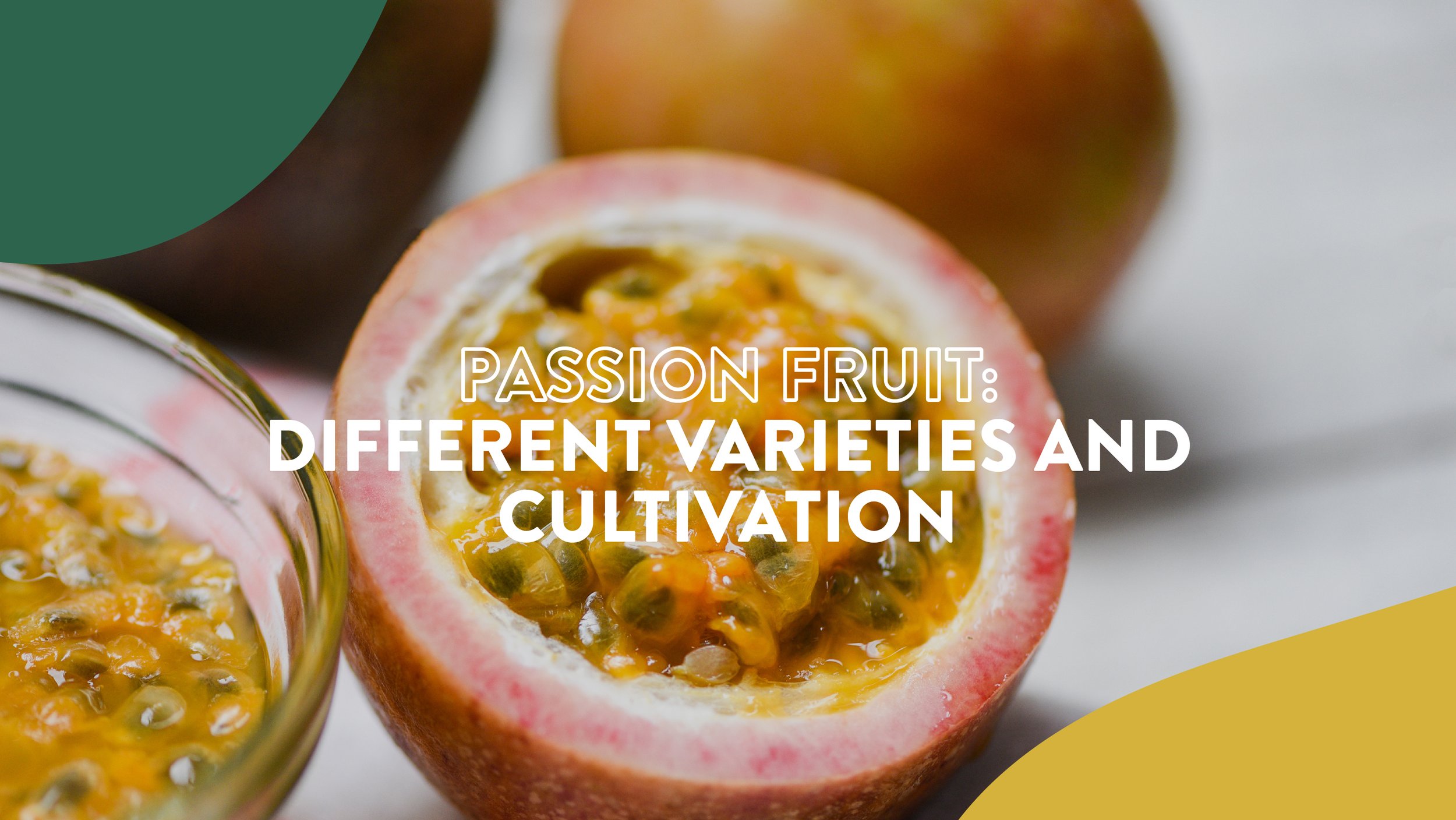Passion Fruit: Different Varieties and Cultivation
Passion fruit, also known as Passiflora edulis, comes in several varieties that differ in color, flavor, and size. These differences affect their culinary uses, benefits, and cultivation. Here are the main varieties detailed:
Yellow Passion Fruit (Passiflora edulis f. flavicarpa)
Characteristics:
Skin: Bright yellow when ripe.
Pulp: Yellow, with a gelatinous texture and edible seeds.
Flavor: More acidic and less sweet compared to other varieties.
Cultivation:
Adapted to tropical and subtropical climates. Prefers well-drained soils and full sun exposure.
Purple Passion Fruit (Passiflora edulis f. edulis)
Characteristics:
Skin: Dark purple to violet.
Pulp: Bright orange with a similar texture to yellow passion fruit but with a sweeter and less acidic flavor.
Flavor: Sweeter and less acidic, with floral and tropical notes.
Cultivation:
Also well-suited to tropical and subtropical climates. Prefers warm temperatures and nutrient-rich soils.
Giant Passion Fruit or Granadilla (Passiflora quadrangularis)
Characteristics:
Skin: Larger and green to yellow when ripe.
Pulp: Similar in texture to other passion fruits, but the fruit is much larger, with pulp that can be white or orange.
Flavor: Sweet, with a less acidic taste than yellow passion fruit and milder than purple passion fruit.
Cultivation:
Requires a warm, humid climate, similar to other passion fruit varieties, but can be more demanding in terms of space due to its size.
Red Passion Fruit (Passiflora coccinea)
Characteristics:
Skin: Red when ripe.
Pulp: Similar to purple passion fruit, with a sweet flavor.
Flavor: Sweet and aromatic, with tropical notes.
Cultivation:
Prefers tropical and subtropical climates, with good drainage and sun exposure.
Sweet Granadilla (Passiflora ligularis)
Characteristics:
Skin: Yellow or green.
Pulp: Fruit similar to granadilla, with juicy and sweet pulp.
Flavor: Very sweet, with an exotic and tropical flavor profile.
Cultivation:
Requires a warm and humid environment and adapts well to soils rich in organic matter.
Each variety of passion fruit has its unique characteristics that make it suitable for different uses and flavor preferences. Understanding these differences can help you choose the variety that best fits your culinary needs or cultivation conditions.
Contact us for more information:
https://www.elfrutalec.com/elfrutal



